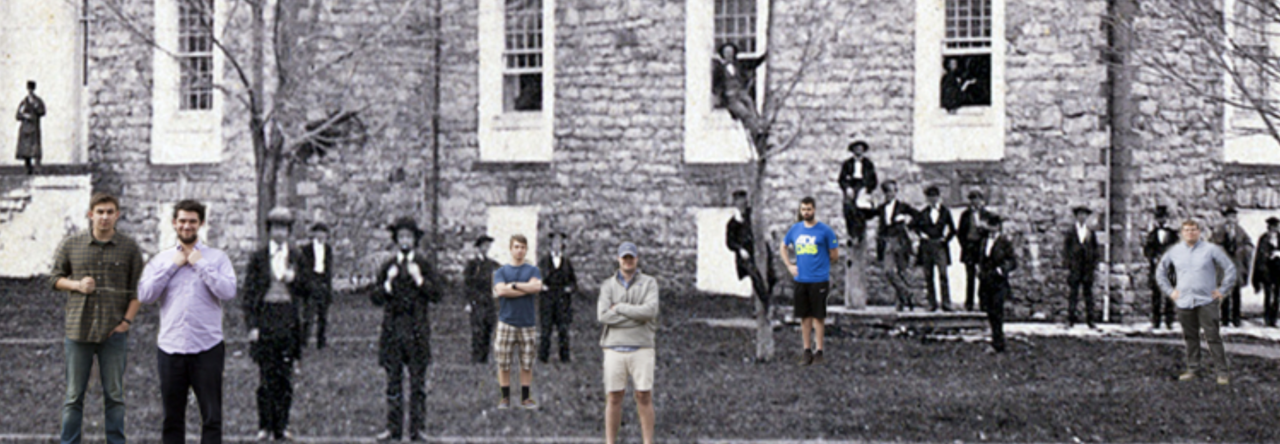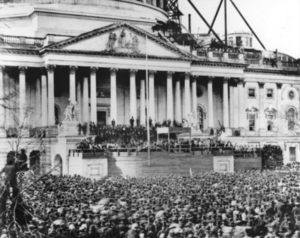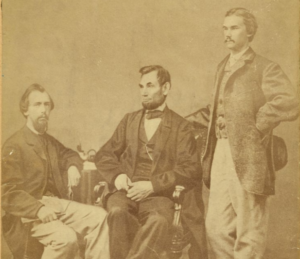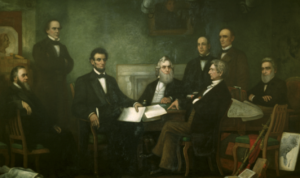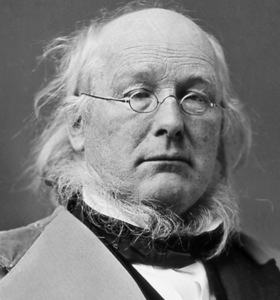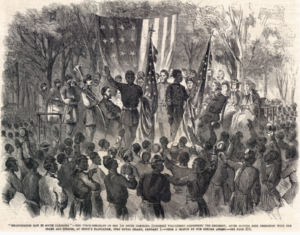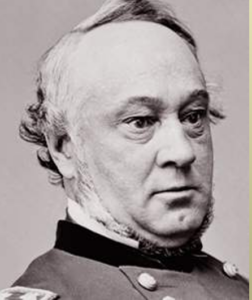Timeline
- May 23, 1861 // Enslaved men Frank Baker, Shepard Mallory and James Townsend run away and present themselves to Union Gen. Benjamin Butler at Fort Monroe, VA. Butler refuses to return these “contrabands.”
- August 6, 1861 // Congress passes first Confiscation Act
- August 30, 1861 // Union Gen. John Fremont declares emancipation and martial law in Missouri but President Lincoln rescinds the emancipation edict
- July 8, 1862 // At his headquarters on Harrison’s Landing in Virginia, Gen. McClellan reads private letter to President Lincoln on the need for a conciliatory war following the bloody stalemate after the Peninsula Campaign
- July 17, 1862 // Congress passes Militia Act and second Confiscation Act, and Lincoln signs into law, despite some concerns about constitutionality
- July 22, 1862 // Lincoln reads first draft of Emancipation Proclamation to cabinet but keeps document secret
- August 22, 1862 // Lincoln rebukes Horace Greeley and explains his position on emancipation
- September 17, 1862 // Battle of Antietam –bloodiest day in US history
- September 22, 1862 // Lincoln announces plans for Emancipation Proclamation
- December 11-15, 1862 // Battle of Fredericksburg defeat creates crisis of confidence in Union
- January 1, 1863 // Lincoln issues Emancipation Proclamation
March 4, 1861 (public)
“I have no purpose, directly or indirectly, to interfere with the institution of slavery in the States where it exists. I believe I have no lawful right to do so, and I have no inclination to do so.”
–First Inaugural Address, March 4, 1861, quoting from the 1858 Lincoln-Douglas debates and paraphrasing from the 1855 Quincy (IL) platform
May 7, 1861 (private)
“We must settle this question now, whether in a free government the minority have the right to break up the government whenever they choose. If we fail it will go far to prove the incapability of the people to govern themselves. There may be one consideration used in stay of such final judgement, but that is not for us to use in advance. That is, that there exists in our case, an instance of a vast and far reaching disturbing element, which the history of no other free nation will probably ever present. That however is not for us to say at present. Taking the government as we found it we will see if the majority can preserve it.”
–Lincoln quoted in John Hay diary, May 7, 1861
July 22, 1862 (private)
“The President himself has been, out of pure devotion to what he considers the best interests of humanity, the bulwark of the institution he abhors, for a year. But he will not conserve slavery much longer. When next he speaks in relation to this defiant and ungrateful villainy it will be with no uncertain sound. Even now he speaks more boldly and sternly to slaveholders than to the world. If I have sometimes been impatient of his delay I am so no longer.”
–John Hay (age 23) to Mary Jay (age 16), Sunday, July 20, 1862 (Gilder Lehrman Collection GLC01569)
August 22, 1862 (public)
“My paramount object in this struggle is to save the Union, and is not either to save or to destroy slavery. If I could save the Union without freeing any slave I would do it, and if I could save it by freeing all the slaves I would do it; and if I could save it by freeing some and leaving others alone I would also do that. What I do about slavery, and the colored race, I do because I believe it helps to save the Union; and what I forbear, I forbear because I do not believe it would help to save the Union.”
–Lincoln to Horace Greeley, August 22, 1862, released first in the Washington National Intelligencer on August 23
January 1, 1863 (public)
“And upon this act, sincerely believed to be an act of justice, warranted by the Constitution, upon military necessity, I invoke the considerate judgment of mankind, and the gracious favor of Almighty God.”
—final sentence of the Emancipation Proclamation
January 1, 1863 (private)
“You know what Gen. Burnside’s plan is; and it is my wish that you go with him to the ground, examine it as far as practicable, confer with the officers, getting their judgment, and ascertaining their temper, in a word, gather all the elements for forming a judgment of your own; and then tell Gen. Burnside that you do approve, or that you do not approve his plan. Your military skill is useless to me, if you will not do this.”
[REVERSE]
Withdrawn, because considered harsh by Gen. Halleck.
A.L. Jan. 1. 1862 [sic]
–Lincoln to Henry W. Halleck, January 1, 1863
Handout
